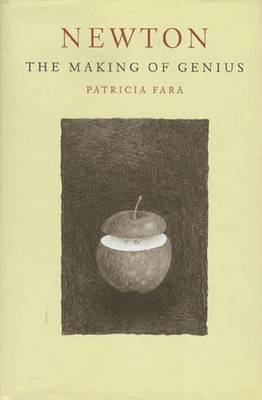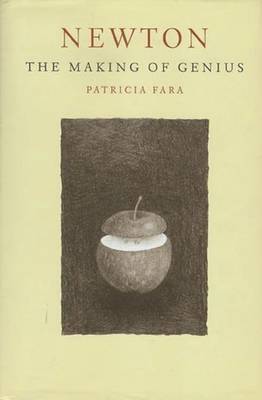
- Afhalen na 1 uur in een winkel met voorraad
- Gratis thuislevering in België vanaf € 30
- Ruim aanbod met 7 miljoen producten
- Afhalen na 1 uur in een winkel met voorraad
- Gratis thuislevering in België vanaf € 30
- Ruim aanbod met 7 miljoen producten
Omschrijving
Isaac Newton has become an intellectual avatar for our modern age, the man who, as even children know, was inspired to codify nature's laws by watching an apple fall from a tree. Yet Newton devoted much of his energy to deciphering the mysteries of alchemy, theology, and ancient chronology. How did a man who was at first obscure to all but a few esoteric natural philosophers and Cambridge scholars, was preoccupied with investigations of millennial prophecies, and spent decades as Master of the London Mint become famous as the world's first great scientist? Patricia Fara demonstrates that Newton's reputation, surprisingly limited in his day, was carefully cultivated by devoted followers so that Newton's prestige became inseparable from the explosive growth of science itself.
Newton: The Making of Genius is not a conventional biography of the man but a cultural history of the interrelated origins of modern science, the concept of genius, and the phenomenon of fame. Beginning with the eighteenth century, when the word "scientist" had not even been coined, Fara reveals how the rise of Isaac Newton's status was inextricably linked to the development of science. His very surname has acquired brand-name-like associations with science, genius, and Britishness--Apple Computers used it for an ill-fated companion to the Mac, and Margaret Thatcher has his image in her coat of arms. Fara argues that Newton's escalating fame was intertwined with larger cultural changes: promoting him posthumously as a scientific genius was strategically useful for ambitious men who wanted to advertise the power of science. Because his reputation has been repeatedly reinterpreted, Newton has become an iconic figure who exists in several forms. His image has been so malleable, in fact, that we do not even reliably know what he looked like. Newton's apotheosis was made possible by the consumer revolution that swept through the Atlantic world in the eighteenth century. His image adorned the walls, china, and ornamental coinage of socially aspiring British consumers seeking to identify themselves with this very smart man. Traditional impulses to saint worship were transformed into altogether new phenomena: commercialized fame and scientific genius, a secularized version of sanctity. Handsomely illustrated and engagingly written, this is an eye-opening history of the way Newton became a cultural icon whose ideas spread throughout the world and pervaded every aspect of life.Specificaties
Betrokkenen
- Auteur(s):
- Uitgeverij:
Inhoud
- Aantal bladzijden:
- 384
- Taal:
- Engels
Eigenschappen
- Productcode (EAN):
- 9780231128070
- Verschijningsdatum:
- 19/05/2004
- Uitvoering:
- Paperback
- Formaat:
- Trade paperback (VS)
- Afmetingen:
- 143 mm x 227 mm
- Gewicht:
- 498 g

Alleen bij Standaard Boekhandel
Beoordelingen
We publiceren alleen reviews die voldoen aan de voorwaarden voor reviews. Bekijk onze voorwaarden voor reviews.











